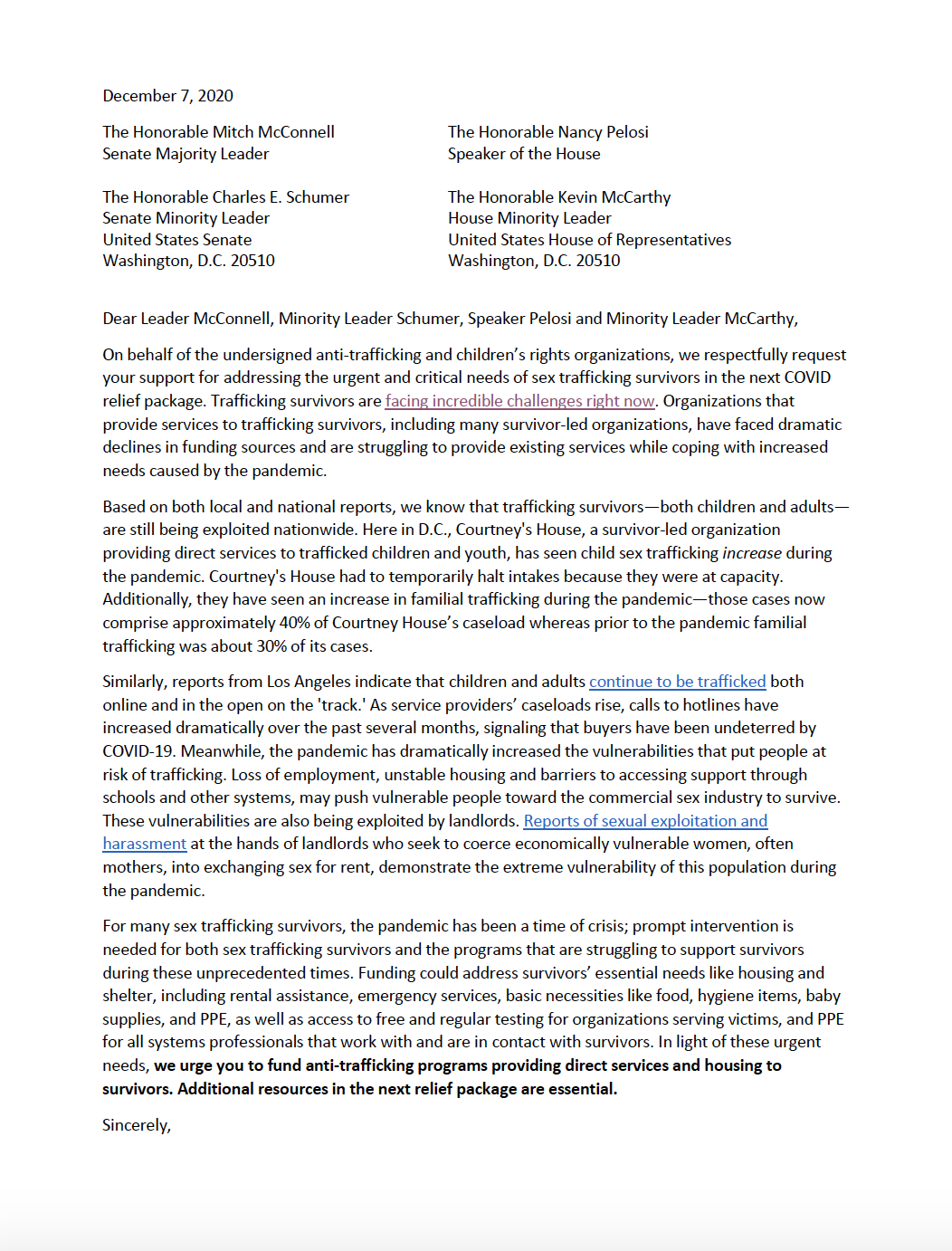Trafficking survivors are facing incredible challenges right now. Organizations that provide services to trafficking survivors, including many survivor-led organizations, have faced dramatic declines in funding sources and are struggling to provide existing services while coping with increased needs caused by the COVID-19 pandemic.
Based on both local and national reports, we know that trafficking survivors—both children and adults—are still being exploited nationwide.
In Washington D.C., Courtney’s House—a survivor-led organization providing direct services to trafficked children and youth—has seen child sex trafficking increase during the pandemic. Courtney’s House had to temporarily halt intakes because they were at capacity. Additionally, they have seen an increase in familial trafficking during the pandemic. Cases of familial trafficking now comprise approximately 40% of Courtney House’s caseload whereas prior to the pandemic familial trafficking was about 30% of its cases.
Similarly, reports from Los Angeles indicate that children and adults continue to be trafficked both online and in the open on the ‘track.’
As service providers’ caseloads rise, calls to hotlines have increased dramatically over the past several months, signaling that buyers have been undeterred by COVID-19. Meanwhile, the pandemic has dramatically increased the vulnerabilities that put people at risk of trafficking. Loss of employment, unstable housing and barriers to accessing support through schools and other systems, may push vulnerable people toward the commercial sex industry to survive. These vulnerabilities are also being exploited by landlords. Reports of sexual exploitation and harassment at the hands of landlords who seek to coerce economically vulnerable women, often mothers, into exchanging sex for rent, demonstrate the extreme vulnerability of this population during the pandemic.
For many sex trafficking survivors, the pandemic has been a time of crisis; prompt intervention is needed for both sex trafficking survivors and the programs that are struggling to support survivors during these unprecedented times. Funding could address survivors’ essential needs like housing and shelter, including rental assistance, emergency services, basic necessities like food, hygiene items, baby supplies, and PPE, as well as access to free and regular testing for organizations serving victims, and PPE for all systems professionals that work with and are in contact with survivors.
In light of these urgent needs, we and other organizations in the movement to end sexual exploitation have sent a joint letter to Congress to urge them to fund anti-trafficking programs providing direct services and housing to survivors. Additional resources in the next relief package are essential.
You can see the letter here:




